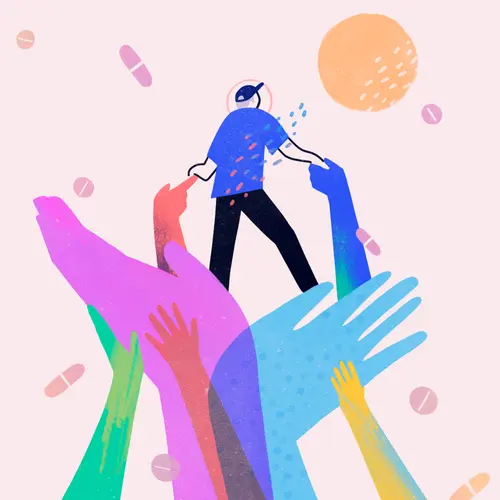Learning that you have HIV doesn’t have to bring your sex life to a stop. By sticking to your HIV treatment on schedule and with a few simple precautions, you and your partner can have sex with almost no chance of passing on the virus.
Tell Your Partner
The first step is letting your partner know that you are HIV-positive so you can both talk about how you can be intimate and stay safe. Thirteen states have laws that require you to disclose your HIV status to anyone you have sex with. Even if you don’t live in those states, sharing your diagnosis allows your partner to decide how much risk they’re willing to take.
Get (and Stay On) Medication
HIV drugs, called antiretroviral therapy (ART), work fast to lower the amount of virus in your blood. Within 3 months of starting ART, your “viral load” can be low so as to be undetectable with tests. That means the possibility that you’ll pass on the virus is extremely low.
Use Condoms
Do it every time, even if your viral load is undetectable and you never skip your medication. Using condoms (male or female) correctly will drop your partner’s chances of getting HIV even lower. Plus, only condoms can protect both of you from other sexually transmitted infections like chlamydia, gonorrhea, syphilis, and herpes.
PrEP Your Partner
It stands for pre-exposure prophylaxis. PrEP is medication that helps people who don’t have HIV stay HIV-negative. When your partner takes it as directed, the drugs greatly lower their chance of getting HIV.
Switch to Safer Sex
Intercourse isn’t the only way to enjoy intimacy.
- Kiss. HIV spreads through body fluids like semen, vaginal fluids, and blood. But the virus isn’t spread through saliva. So unless you or your partner have mouth sores or bleeding gums, they’re extremely unlikely to get HIV from kissing.
- Opt for oral sex. It’s also much less risky than vaginal or anal sex. A plastic device called a dental dam will make oral sex even safer.
- Put your partner on top during anal sex. It’s safer for the HIV-positive partner to be the receiving person. That’s because the lining of the anus is very thin, which may let HIV enter the body easily. It’s still possible for your partner to catch the virus through the opening, foreskin, or any cuts on their penis, but the risks are lower.
- Have outercourse. This is any form of sexual contact that doesn’t come in contact with bodily fluids. Mutual masturbation is one example.
- Cuddle. Hug. Hold hands. Massage and touch. Find whatever ways to pleasure each other.

